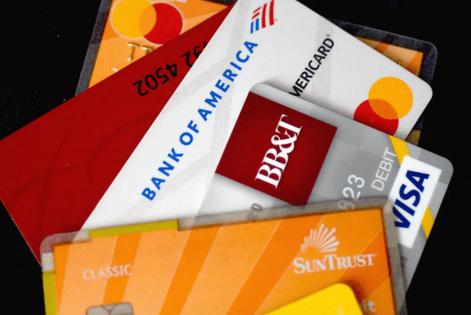Allison Schrager: Cash is not king. It's cringe
Published in Op Eds
A friend once complained to me that people would sigh and roll their eyes when she used a credit card to pay for her $3 coffee. This was about a decade ago, and I admit, at the time I silently judged her. What kind of psychopath, I thought to myself, forces everyone in line to wait for their coffee while her credit card transaction is approved?
How times have changed, and I’m not talking about that $3 coffee. Today I feel that same impatience when someone ahead of me rummages through their wallet to find exact change to make a cash purchase. Electronic payments are much faster and have become the norm, even for small purchases.
Now it is cash that carries a social stigma — as this survey of Generation Z consumers makes clear. Conducted in September, it finds that 53% use physical cash only as a last resort, and 29% believe that people who pay with cash are “cringe.” I will ignore the generational insult and focus on the implications of this shift for both consumer behavior and public policy.
The first thing to note is that, while Cash App certainly has an interest in people using an app instead of cash, the survey results mirror trends tracked by the Federal Reserve. In 2024, only 17% of respondents to a survey said they preferred cash for in-person transactions, down from 27% in 2016.
Older and lower-income Americans are still more likely to use cash, but even for them it is becoming less common. Only about a quarter of transactions by people with income under $25,000 involve cash, and they amount to only 19% of transactions made by people over age 55.
With more phone-based payments and almost every merchant taking electronic payments (with the notable exception of several Italian restaurants in New York City, you know who you are), cash is destined to become even more obscure and old-fashioned. That means consumer spending patterns may change, as well as federal regulations.
The prevailing presumption is that people spend less when they use cash, because it makes them more aware of what things cost. It also puts a hard constraint on what they can buy, since they are limited to what fits in their wallet. The evidence in support of this view, however, is mixed, with some studies finding little impact on spending depending on means of payment. That may be because most day-to-day transactions are fairly small.
Credit card transactions, meanwhile, have explicit costs: swipe fees, the term for what banks charge merchants to accept cards (usually 2.5% to 3.5%). This cost is often passed on to customers.
Some members of Congress are taking aim at these fees, but new technology will probably do some of the work their proposed legislation aims to do. The passage of the Genius Act means that stablecoins may replace credit cards, especially for people who don’t have access to credit. But to make them viable, customers will either have to bear some risk on their accounts or pay fees that are at least comparable to credit or debit cards.
The data also show that lower income Americans are already using electronic payments for most of their transactions. A more viable option that could disrupt credit cards is digital currency issued by a central bank.
But it would be a mistake to overlook the drawbacks of cash — or the benefits of non-cash. Cash involves what economists call shoe-leather costs, basically the time and effort it takes to go to a bank. Cash also carries a greater risk of theft. And electronic payments make it easier to track spending, which brings the promise of much more accurate inflation data than current survey methods can produce (as well as the potential for more invasions of privacy).
The bottom line is that, cringe notwithstanding, cash will never totally disappear. Like gold, it satisfies some deep primal desire for security. We humans need cash just in case things go horribly wrong and the global economic system crashes — or the power grid is taken out and our credit cards are rendered useless. According to the Fed, on any given day, four out of five Americans still have some cash on them, and nine out of 10 have no plans to give it up. That is their right, just as it is mine to silently judge them when they are ahead of me in line at the coffee shop.
____
This column reflects the personal views of the author and does not necessarily reflect the opinion of the editorial board or Bloomberg LP and its owners.
Allison Schrager is a Bloomberg Opinion columnist covering economics. A senior fellow at the Manhattan Institute, she is author of “An Economist Walks Into a Brothel: And Other Unexpected Places to Understand Risk.”
©2025 Bloomberg L.P. Visit bloomberg.com/opinion. Distributed by Tribune Content Agency, LLC.
























































Comments